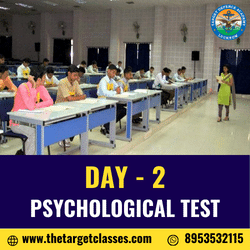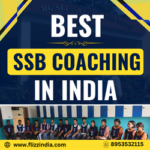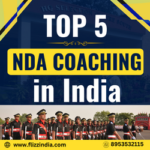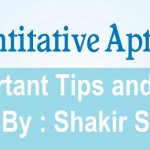Overview
SSB interview procedure spans for 4-5 days in which the panel of assessors assess the candidates who are officers in the Indian Armed Forces and having their specialization as Psychologist, GTO (Group Task Officer), and Interviewing Officer.
Services Selection Board (SSB) is an organization that assesses the suitability of the candidate for becoming an officer into the Indian Armed Forces (Indian Army, Indian Navy and Indian Air force) using a standardized protocol of evaluation system which constitutes personality, intelligence tests, and interviews.
5 Days SSB Procedure
The tests are of both types i.e. written and practical task-based.
The entire 5 days SSB interview procedure is discussed in detail:
Based on the Call-up letter issues by the Service selection board (SSB), you will be called to one of the above mentioned SSB Centers. The candidate should report to the Movement Control Office (MCO) located at the railway station as per the dates mentioned. The timely arrival at Reception Centre established by Service Selection Centre on the day mentioned in the call-up letter is mandatory. This timely arrival can avoid the initial adjustment problem in a new place and environment. The staff of the Service Selection Centre will arrange your conveyance from Railway Station to Service Selection Centre.
Day 1, Screening test
On the very first day, the screening test is conducted consisting of an OIR (Officers Intelligence Rating) test and PPDT (Picture Perception & Description Test).
OIR Test: It is a Verbal and Non-verbal Test. If you are preparing for the OIR Test and PPDT, you can get the best OIR Test book here. OIR Test is a basic aptitude test but it is always good to go well prepared, you can check some verbal and non-verbal sample questions here. After this test you will get some rest, and later proceed for PPDT.
PPDT: This consists of story writing and group discussion. You will be shown a picture for 30 Secs, later you will have 3 minutes to write a story based on the picture shown, after that, you will be divided into sub groups of 14-15 members, firstly each candidates will narrate his/her story which is followed by the group discussion on the picture, among the group members. You can find more details here. Keep in mind that PPDT is the most important part which helps you to clear screening and takes you to stage-2 testing.
Day 2, Psychological test
TAT (Thematic Appreciation Test): In this test, the candidates are shown 11 hazy/blur pictures on the projector one by one and the candidates need to write a positive story on the shown pictures. The 12th picture will be blank and the candidate needs to write a Self-Description on the same.
WAT (Word Association Test): This test is to determine the candidate’s psychology. Candidates will be shown 60 words on a projector consecutively and they have to associate these words with some positive events.
SRT (Situation Reaction Test): SRT is conducted after WAT and 10 minutes will be given to the candidate for answering these questions. The total number of questions will be 60 and the candidates have to write 2-3 sentences in each situation.
SDT (Self Description Test): You are required to write opinion about you from your parents, friends, teachers, yourself and thing you would like to develop in future. This will also help you with writing the Personal Information Questionnaire (PIQ). Time allotted will be 15 mins.
Day 3 & 4, GTO
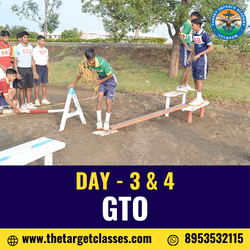
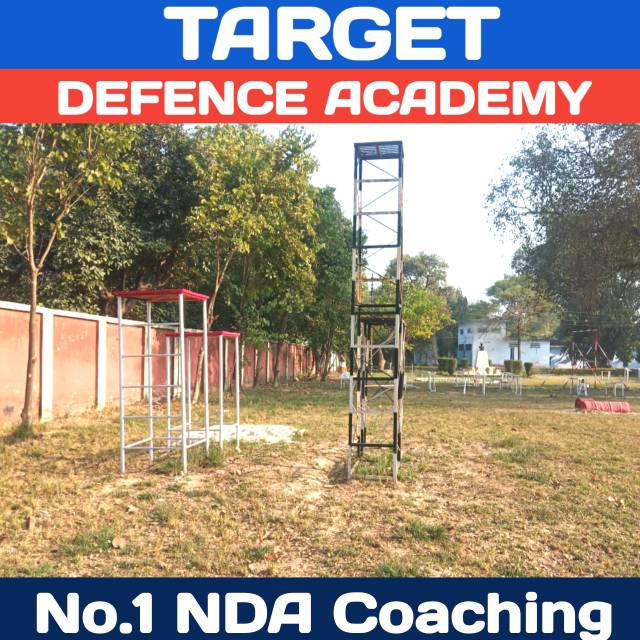
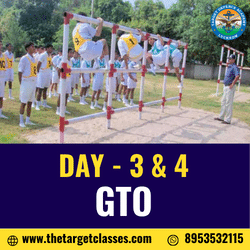
After the restless exercise of Psychological testing in Stage-II, the candidates are given series of outdoor tasks. Group Testing Officer (GTO) conducts this stage of selection process. There are a total of nine tasks on basis of which the candidates are to be selected.
1. Group Discussion (GD): The candidates are tested in two phases:
i. In the first phase, the GTO gives two subjects to the group and the group is asked to discuss one subject
ii. While in the second phase the GTO gives them one subject. It is discussed for about 15-20 minutes and the aim of GTO in the group discussion is to understand candidate’s potential.
2. Group Planning Exercise (GPE): A situation is given to the group, in which there maybe four or five problems. These problems are to be solved, using the available resources, which should be practical and reasonable. It is conducted in two phases:
i. In the first phase, the candidate has to write out his individual solution.
ii. In the second phase, the group has to discuss the situation amongst them in about 15-20 minutes.
They have to arrive at a commonly accepted group plan. Once, having arrived at a group plan, the group has to choose a spokesman, who should give out the group solution. The exercise is meant to find out the candidates ability to solve day-to-day problems in which a certain amount of risk is also involved and to assess his general awareness.
3. Progressive Group Task (PGT): The PGT is the first outdoor task. This is a set of four obstacles fixed in a serial manner on the ground, which the candidates have to cross in a manner of a certain fixed time (45 mins) decided by the GTO.A few restrictions like group rule, color rule, rigid material rule and distance rule are applicable while planning for group activities.
4. Group Obstacle Race / Snake Race: The group obstacle race is basically a group activity and each member’s contribution to planning & execution is important. Some color rule restricts or facilitates each group member’s work together as a team.
During this activity, GTO will closely monitor the candidate’s team spirit, involvement, attitude, and patience to achieve the successful end of the task or race. A sincere, accommodate and cooperative individual can enjoy this teamwork test very interestingly.
5. Individual Lecturette: The GTO will invite candidates to speak about a given subject (general knowledge subjects related) for two to three minutes. He will be given at least one minute to choose and prepare a subject. It is a very simple and normal subjects. However, the candidate should try to speak according his own education backgrounds.
6. Half Group Task (HGT): It is a close interactive session of five candidates to identify and solve a problem within the group. This will give a fair amount of time for GTO to assess Individual candidates. Individual performance & activities can be easily assessed by GTO. All rules of PGT is applicable for the half group task. Hence no major difference in conducting part except members of the group will be a maximum of five.
7. Individual Obstacles: The candidate has to go over a course of 10 obstacles during the time period of 3 minutes. the obstacles are numbered from 1 to 10. The number of obstacles denotes two things:
i. The serial numbers.
ii. The marks you score, if you do it successfully.
8. Command Task: This system is an individual task. Here, each candidate is given an assignment. In this, you are responsible for planning, executing, and completing the given task in the given time of 15 minutes. So you can take 2-3 colleagues as his subordinates from the group to do the task. The rules governing the task are the same as in other outdoor tasks but the group rules does not apply here since there is only one obstacle, and as it is done by an individual.
9. Final Group Task (FGT): It is same as PGT, just like another chance to show your potential.
Day 5, final assessment and results (Conference)
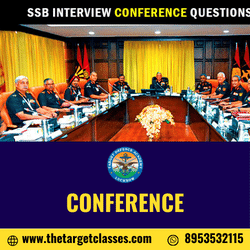
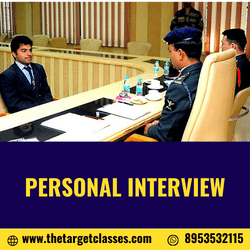
On last 5th day of SSB interview procedure, All the officers in proper uniform will attend a conference with each candidate. They will also have a conversation with a panel of assessors. The assessors will look for confidence and expression when speaking; a positive attitude in adversity and in life; honesty. Following this, the final results are announced. Successful candidates will remain for an intensive medical examination which takes four to five days at a military hospital.
Note: A personal interview round is also organized on any day between second to the fourth day. The interviewing officers are a top senior officer like Colonel or Brigadier. Personal Interview is an integral part of the SSB interview process in which the details in PIQ (Personal Information Questionnaire) form are matched with your personality so they need to be correct.
Attempt NDA GAT Mock Test (Free) – in Mobile App
For NDA previous years question paper: Click Here



